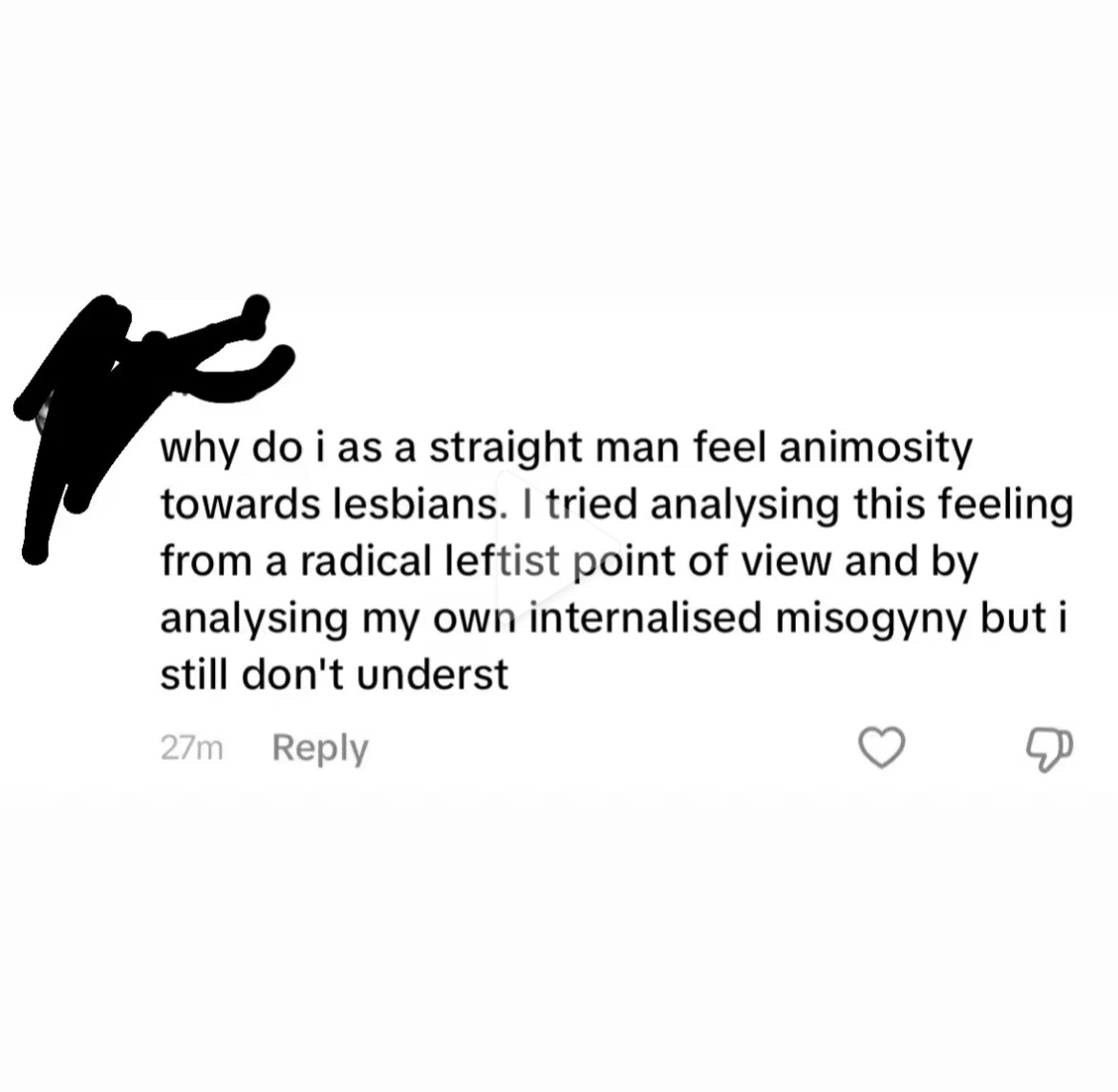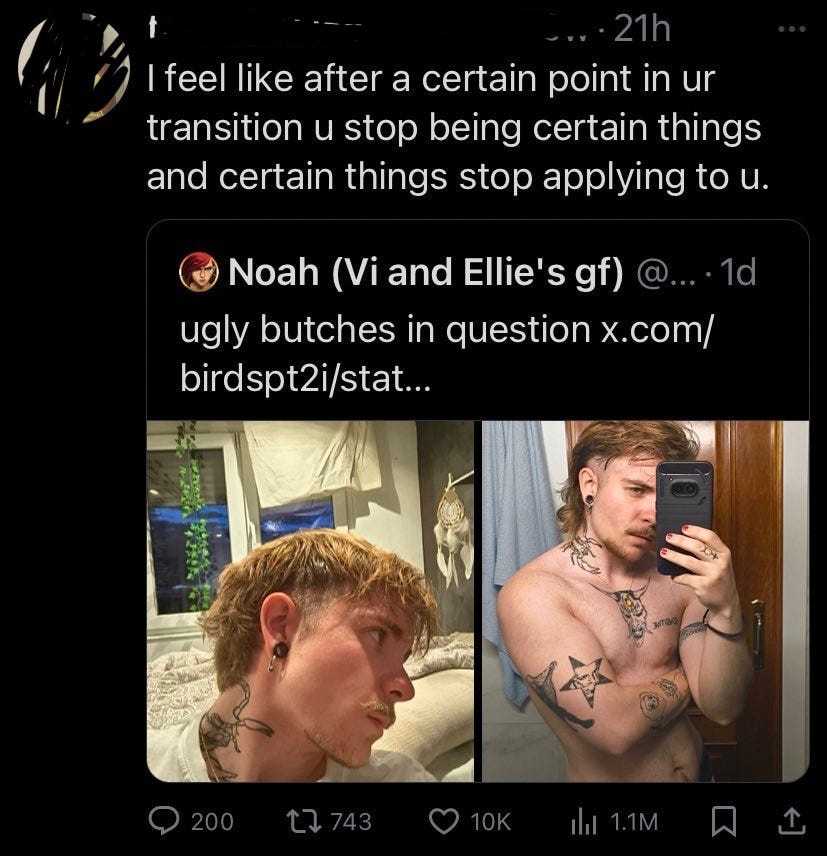taylor swift in pants is the most masc a girl can get before we start getting scared
musings on lesbianism
my history with the word “lesbian” is complicated. before the age of 13, i began my confusing and extensive label journey. i have identified as so many things that i have lost track. pansexual, bisexual, asexual, queer, gay, lesbian, bisexual again, lesbian again, confused. i struggled against these labels as if they were weathered rope tearing into the delicate skin on my wrists until i finally settled into the cozy home that lesbianism provided me. but, even after moving in, i felt uneasy calling myself a lesbian, despite my complete identification with what the word represented. growing up, in media and amongst individuals in my environment, i heard the word “lesbian” being used as the butt of jokes; i heard it spit out of mouths as if it were spoiled milk; i heard it avoided like the plague and replaced by other, less fitting, words. even now, if the word isn’t intentionally circumvented while describing someone who identifies as a lesbian, it’s being intentionally used to portray lesbianism as dirty, unnatural, embarrassing, absurd, unreliable, annoying, broken, shameful, corrupt, or any other negative adjective you could think of. so, naturally, when i realized that “lesbian” is the term that best fits my attraction to women and my distrust of men, i felt dirty, unnatural, embarrassed, absurd, unreliable, annoying, broken, shameful, corrupt, etc. despite their efforts on the frontlines during the AIDS crisis and their continued support for their queer siblings, lesbians are shunned to the highest degree in their own community; a community that preaches inclusivity and acceptance (but never for black men and women, trans women, or lesbians). since my settling down with the label of lesbian, i have never felt more alone and more connected with others in my life. i don’t remember what age i was when i reluctantly adopted the term lesbian, but i do remember that it took years to confidently say the word out loud when describing myself. every syllable got stuck in my throat on the way up, the word tasting rotten on my tongue until, one day, it didn’t. i wish i remembered this shift; if it was gradual or sudden, what it felt like when the use of the word finally didn’t cause me to taste bile in my mouth. i lived in a delusion for years afterwards, thinking that, if i loved the word lesbian, then everyone else must have, too. i miss this fantasy and the security it brought me, because, now, everywhere i look, sickening “takes” on lesbianism stop me in my tracks. in the spirit of carrie bradshaw, i couldn’t help but wonder…why is everyone so uncomfortable with lesbianism?
to put it simply, lesbianism threatens the patriarchy, and this scares the shit out of both men and women of most sexual/gender orientations. i am not claiming, however, that i, as an individual lesbian, do not perpetuate the patriarchy. i crave male attention and validation, i have claimed that i am “just a girl,” i have policed other women and hated them simply because they were women. however, lesbianism as a whole threatens the upholding of the patriarchy and heteronormativity by de-centering men from the lives of those who identify. a lesbian’s life does not revolve around when their boyfriend will propose to them or when they can reproduce with their new husband. women and non-men are expected to center men in our lives because men are needed to fulfill our “biological purpose,” open our jars, build our homes, and support our families. lesbianism makes possible a world in which men do not exist and are not needed for anything, much less a fulfilling romantic life. lesbianism makes possible a world where other women are our friends, our sisters, our lovers instead of our enemies, potential threats to our relationships with men. and this frightens both patriarchal men and women; this is why lesbians are hated, even by their own community. even the gay man or the bisexual woman’s life revolves around their relationships with men, both platonic and romantic. lesbianism is only valuable to men and non-lesbian women when it can be fetishized for the benefit of men. many lesbians not only remove men from their romantic lives, but their lives in general. this radical de-centering of men in women’s lives should feel threatening to these patriarchal men, women, and queers; it should be ruthlessly uncomfortable.
discomfort surrounding the lesbian identity is particularly present when discussing masc and butch lesbians, who not only threaten the centering men in their lives, but also traditional gender roles and gender essentialist concepts that state that men are natural-born leaders, dominant, and emotionless (with short hair) while women are submissive, passive, and emotional (with long hair). taylor swift in pants is quite literally the most masc a girl can get before the internet starts getting scared. when lesbians begin to cut their hair, bind their breasts, take testosterone, etc., random users on X, most likely not a lesbian themselves, determine that this person can no longer be a lesbian. when, in reality, these practices are integral to lesbian history. just take a look at our flag…the dark orange quite literally represents gender non-conformity. relinquishing the hold that binary gender structures have on our lives is a part of the foundations of the lesbian identity. these same individuals critique other lesbians for their attraction to masculine lesbians and claim that lesbians attracted to butches “cannot be lesbians,” because butches are “practically men.” these critiques of lesbians’ attractions to each other would never, in the year 2024, be made toward gay men attracted to traditionally “feminine” men who paint their nails or wear makeup, skirts, and sparkly tops. all homophobia is not created equal. like in any other space, men come out ahead.
lesbophobia, especially on the internet, is particularly interesting to me when you begin to learn about lesbian language and its history. anyone with even just the most basic knowledge of lesbian terms is able to examine internet slang and acknowledge that, despite the widespread hatred of lesbians, the internet has coined much of our language for themselves. stud, butch, masc, femme (not fem, but femme), top, bottom, comphet, and many more, i’m sure. while top and bottom are not exclusively lesbian terms, the rest in that not-so-comprehensive list are, and not only straight people, but other queers as well, have adopted terms that do not belong to them. this strips these words of their unique and important power that lesbians so rarely get to hold in het and queer spaces. but maybe that is intentional.
the use of the term “comphet” by other queers is something that, while i (believe it or not) can empathize with, truly pisses me off. this is a term that uniquely applies to a lesbian’s experience of the patriarchal and heteronormative centering of men in women’s lives to maintain their subservience to men, and was popularized by adrianne rich in an essay literally titled, “compulsory heterosexuality and Lesbian existence.” in this essay, rich argues that sometimes, get this, a woman’s sexuality towards men isn’t always natural or innate, it can be learned, scripted, ingrained. real lesbians, including myself, struggle with comphet every single day. it makes the journey of discovering lesbianism nearly impossible and the most terrifying thing that many lesbians will ever experience. lesbians can and have, in some cases, had real, loving relationships with men; this does not make them less of a lesbian. lesbians can and do, in some cases, experience sexual and romantic attraction to men; this does not make them less of a lesbian. lesbians can and will experience sexual confusion, despite their years’ long identification with a lesbian label; this does not make them less of a lesbian.
and, yes, you are uncomfortable with lesbianism even if you have lesbian friends. like everyone, even the most empowered woman, upholds the patriarchy, i believe that everyone, even other queers and straight people with absolutely zero homophobic bones in their bodies, have a problem with lesbians. and my proof lies in how many times i have been hurt (unintentionally, of course) by close friends of mine who question my sexuality on my behalf. i have been out as a lesbian and loud about it for years and i still find myself trying to prove that to others constantly. to others, lesbians don’t really exist; i mean, how could they? attraction to men is just so…natural.
even with the hardship the lesbian identity brings to my internal life and (some) of my relationships, i wouldn’t change it for the world. i love lesbians, i think they are incredibly brave and special and magical and every other positive adjective in the english language. i love being a lesbian, it brings me the kind of fulfillment and community that, as a young person, i never thought i would attain. it can hurt to hear the word, “lesbian,” being used like an insult, or avoided altogether, and it can feel earth-shatteringly special to hear it leave my lips with love laced in between every letter. my life changed into something beautiful and glittering when i accepted lesbianism into my life; it feels an awful lot like what people describe finding god as. i think that if heaven is real, the streets are paved orange and pink.
mwah!







from one lesbian to another who has gone through (& continues to go through, honestly) the rigamarole of confusion & shame & insecurity that comp-het creates... this is a beautiful piece. thank you <3
you ate this one up, this article is literally what my lesbian roommate and i talk about on a daily basis. Thank you for this 🫶🏾